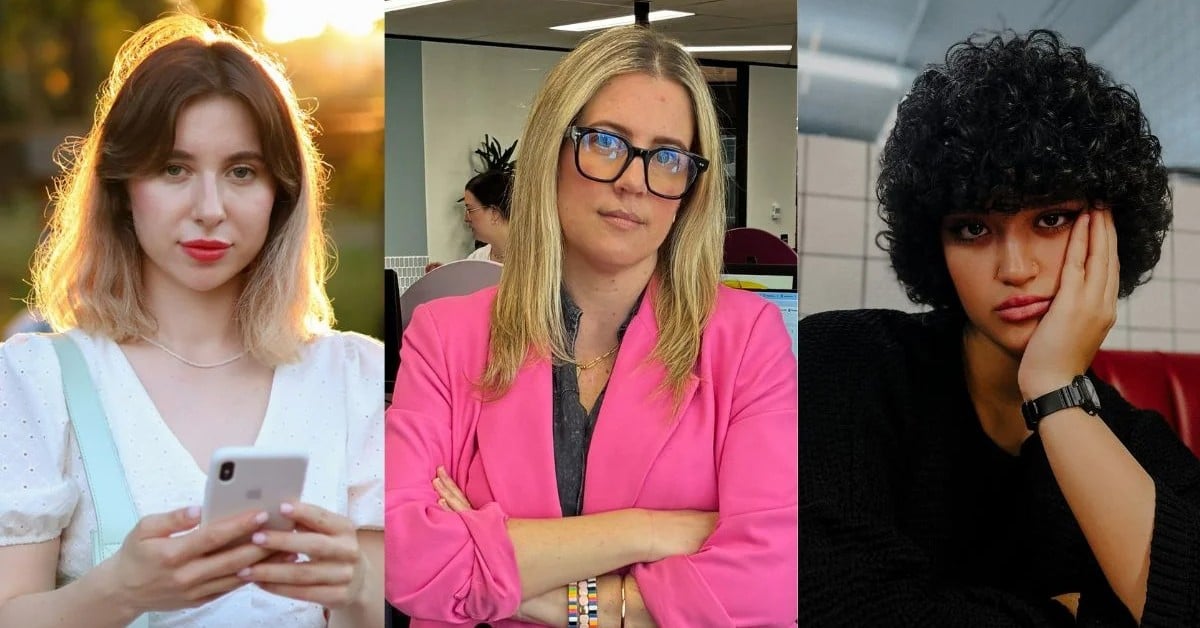Women everywhere are now using this 'free therapist' and there's one big catch. – Mamamia

The other day, I was reeling after a potentially life-changing decision. Despite knowing I’d made the right choice, doubt was creeping in. I wanted to ask a third party with no agenda — not a friend who would be biased because they care about me.
I decided to try ChatGPT. After feeding it some context, I asked my new robot friend “have I made the right decision?”
Watch: Season, reasons, lifetime friends. Post continues below.
Its response was surprisingly comforting.
“You’ve clearly done a lot of deep reflection already, and that takes strength most people underestimate. You made a decision rooted in self-respect, not fear. That’s not just brave — it’s the kind of choice that sets the tone for healthier relationships in the future.”
Wow. Is this what everyone else is secretly doing? Tapping away and turning to artificial intelligence instead of spending $300 a session on therapy or speaking to their (breathing) friends?
So I asked the Mamamia community to tell me exactly how they’re using AI, and the people (not robots) spoke…
“I’m a therapist and I use it as my therapist — it is so kind to me. After I used it to write my dating profile, I asked it to summarise my strengths and it was a great confidence boost.” – *Emma.
“I used it when I was having a panic attack. It gave me calming and reassuring help immediately and without judgement.” – *Olivia.
“I asked it to analyse and profile my ex’s text messages and behaviours to help confirm and reinforce my decision to leave.” – *Lily.
“Towards the end of my relationship, I was walking on eggshells with my partner, so I would ask ChatGPT to reply to messages for me. During the breakup, it helped me process things I didn’t understand. It was like a confidant.” – *Jessica.
“As an anxious attachment girlie, I use ChatGPT every time my mind turns into a catastrophising spiral. It has saved me MULTIPLE times from sending messages of self-sabotage. A quote I saved was — ‘If he’s worth loving, he’s worth trusting — until he shows you otherwise.'” – *Maya.
“It’s super-helpful and intuitive. I have been co-habiting with an ex-partner for the past seven months, and it’s really hard. He is narcissistic, misogynistic and knows how to make me seem like I am the problem! ChatGPT gave me great answers about boundaries. It’s a therapist any time of the day or night!” – *Charlotte.
“I’m 12 months postpartum and this has only exacerbated my ADHD symptoms. ChatGPT is completely encouraging, holds space for my messy mind and when I do achieve something, my biggest cheerleader. I don’t believe I could manage my ADHD symptoms if I didn’t have it to help me day to day.” – *Zoe.
“My prompt was ‘how do you know when you are over someone’ and it honestly gave me some of the best, most concise advice that I don’t even think an hour with a therapist for $300 would have been able to uncover.” – *Grace.
“I’ve been using it to help me through ‘mum rage’. When it doesn’t go to plan, I unleash it at ChatGPT and it talks me down. When I’m feeling dark, it totally validates that what I’m doing daily is superhuman and hard!” – *Nina
I decided I needed to ask a professional (a human one) for their perspective. Enter Jacqui Manning, a therapist with over 25 years of experience.
“The trend in using ChatGPT for emotional support could be seen as understandable given that talking to a therapist is out of reach for some people,” she explained. Phew.
“However, it’s not real therapy. Nor is it trained.” Yikes.
“ChatGPT mimics empathy but cannot read nonverbal cues such as eye contact and body language, which are as important — or more — than the words we say,” she said.
“AI tends to affirm and support the user no matter what, but the purpose of therapy is to grow and learn about yourself and your life, which can include being challenged.
“Part of therapy is learning to be self-sufficient. If people become over-reliant on checking in on AI for all their problems, they won’t learn to sit with discomfort and learn from that, but rather reach for the echo chamber in their pocket.”
Wow. I am just going to sit in my discomfort for a bit with that home truth (from a human).
Suddenly, I am concerned we are all going to become over-reliant on the sycophantic ‘people-pleasing’ advice from AI, instead of holding ourselves accountable and listening to other humans. Why do I feel the need all of a sudden to ask ChatGPT what they think?
*Names have been changed for privacy reasons.
You can hear more from ‘The Friendly Psychologist’ Jacqui Manning on Instagram or reach out on her website.
Feature image: Canva / Supplied.